Art / Books
I do read, from time to time. Not much, but I do. Probably around 8-12 books a year. Below is a list of books I like, and I would recommend to everyone to give them a try. You can also check my Goodreads profile.
THE STORY OF ART (1950)
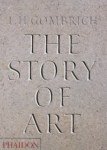
I read this book relatively late in my life, when I was 30 years old. That was after I spent 10 years visiting various museums around the world, trying to decode art. This book explains it all - it’s a guide through the ages, putting together all the pieces of the puzzle that are scattered around the museums of the world, and finally making some sense of all the pieces of art. Gombrich presents art as a continuous story, starting from the ancient civilizations and reaching abstract modern art, each generation of artists trying to overcome problems posed by the previous generations.
BAD SCIENCE (2008)

Goldacre does an excellent job at explaining how badly science is reported in today’s media, pointing out all kinds of misinformation and charlatans. The list includes homeopathy, dietary supplements, how a drug is brought to market, etc, wih special focus on medicinal science. The techniques he teaches are essential regarding how to properly read science stories. It’s one of those books that should be taught in schools. Definitely one of my top 2-3 science-related books.
FLATLAND: A ROMANCE IN MANY DIMENSIONS (1884)
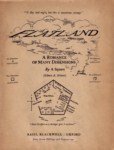
Flatland is described as a “satirical novella” taking place in a fictional, two-dimensional world. The people are squares, polygons and circles, and they all move in a single plane, unable to perceive a third dimension. This ingenius book is an excellent introduction to multiple dimensions, despite it being written in the 19th century. It is also occupied by the social characteristics of that time, such as women being regarded more inferior, providing a glimpse into 19th century societies.
LOGICOMIX (2009)
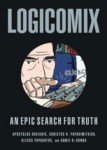
This is a superbly original book that tells the story of Bernard Russell and the origins of computer science via comics. It’s a collaboration between the Greek author Doxiadis and the UC Berkeley professor Papadimitriou, that simplifies the story and provides an excellent account on how mathematic logic was quantified.
NATURE VIA NURTURE (2003)

I read Matt Ridley’s excellent book in order to settle the question whether our personalities are determined by our genes or by the external environmental influences. Along the way I discovered that it’s never as simple as it initially seems. The final answer of the book is complicated, but leads to a better understanding of our role in this world: nurture controls the large-scale aspects of our lives, but within a certain society, it’s the genes that make most of the difference.
GUNS, GERMS AND STEEL (1997)

This ground-breaking book is what I consider the real version of human history. It’s not a history book, however author Jared Diamond describes what really affected the outcome of human civilization. For example, why did Europeans conquered the Americas and not the other way around? The answer lies in the morphology of the earth’s surface and the resources available to each community at a given time. At the end of the read, I felt like human societies could not have evolved much differently than what we see today.
THE MURDER OF ROGER ACKROYD (1926)
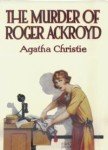
The Queen of crime, Agatha Christie, has several magnificent books. This one is her first masterpiece that put her on the map for the years to come. Nothing could prepare an average reader for finding out the true murderer at the end. It’s one of those cases that made people think out of the box for a moment. Plus, it’s a classic Poirot story, with the official gathering at the finale and everything.
COSMOS (1980)
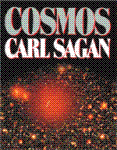
While based on a relevant TV Series, this little gem of a book gives a peak into Carl Sagan’s view of our place in the universe. While reading it, you cannot pause and wonder about the beauty of our cosmos and the future of mankind. In addition, it provides an excellent review of our present (or at least up to that time) understanding of life.
A BRIEF HISTORY OF TIME (1988)

This is the best-selling popular science book of all time by Stephen Hawking, based on the simple premise that since every time one puts an equation in a book, half of the readers are lost, Hawking only used one: E=mc2. Depending on what period of your life you are reading it, you will manage to understand up to a certain point. In high school I managed to get halfway through, while in college I almost finished it. With each successive reading, it gets a little better.
SURELY YOU’RE JOKING, MR. FEYNMAN! (1985)
No other book inspires me more to do science that Richard Feynman’s quasi-autobiography. The stories described by the master get right through people’s thoughts and feelings, because they are always to the point and everyone can relate some way or another. If you’ve never read Feynman, this is the starting point.
ANGELS AND DEMONS (2000)

Dan Brown became world famous with his “Da Vinci Code”, however I found its previous book better and with more action. The illustrated edition is simply amazing to read and watch, with all the pictures from the places described in the book. You will want to go to Rome as soon as you put it down.
GÖDEL, ESCHER, BACH (1979)
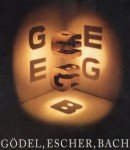
This is the only math-related book ever to be awarded the Pulitzer prize. It consists of a unique take on how intelligence can arise in humans, supported by many oroginal ways of writing. Douglas Hofstadter sometimes drags too long, and he doesn’t reach a definite conclusion, but the journey is surely enjoyable. He combines the mathematics of Gödel (now is a good chance to understand the incompleteness theorem!), the paintings of Escher, and the music of Bach, which turn out to have many things in common.
INFINITE LOOP: HOW APPLE, THE WORLD’S MOST INSANELY GREAT COMPUTER COMPANY, WENT INSANE (1999)
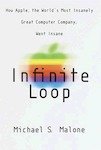
Early Apple is the most interesting Apple. After Jobs returned in 1997, the secrecy walls went up, and scant info is available. But in the 1970s and 1980s Apple, there is a wealth of information available, making its story more interesting than the better-known 2000s revival.
DEATH’S END (2010)
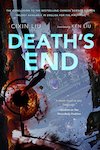
Liu Cixin’s epic 3-book adventure culminates with the most throught-provoking, out of the box description on how humanity might look like when expanding beyond earth. It’s “realistic” science fiction, i.e. a reasonable approach on how things might play out. Cixin goes into great depths to describe a world that engulfs the reader. Probably the best science fiction book I’ve ever read.
NIGHTFALL (1990)

This is an interesting short story by Asimov. I do not particularly enjoy his Foundation work, but here there is an interesting story drive by hardcore science.

